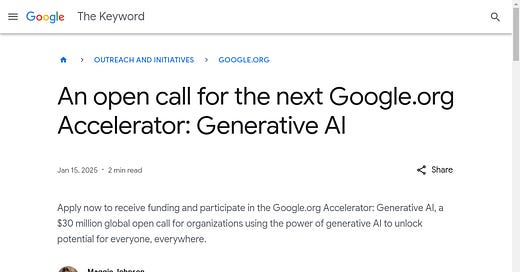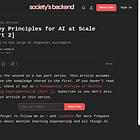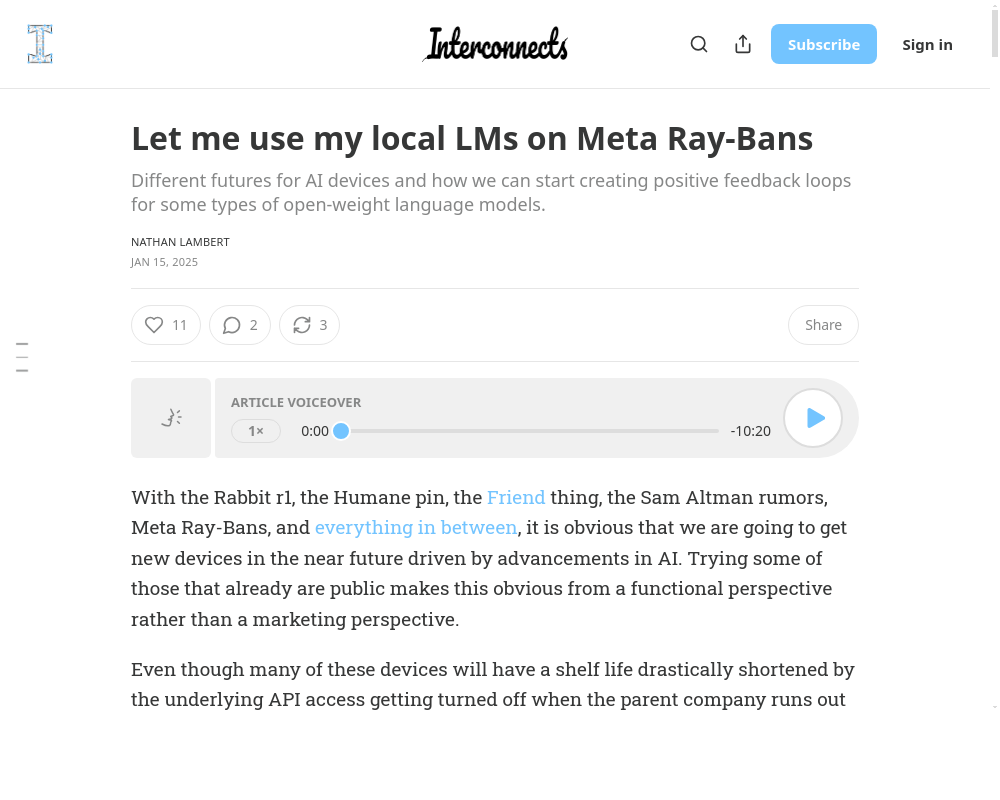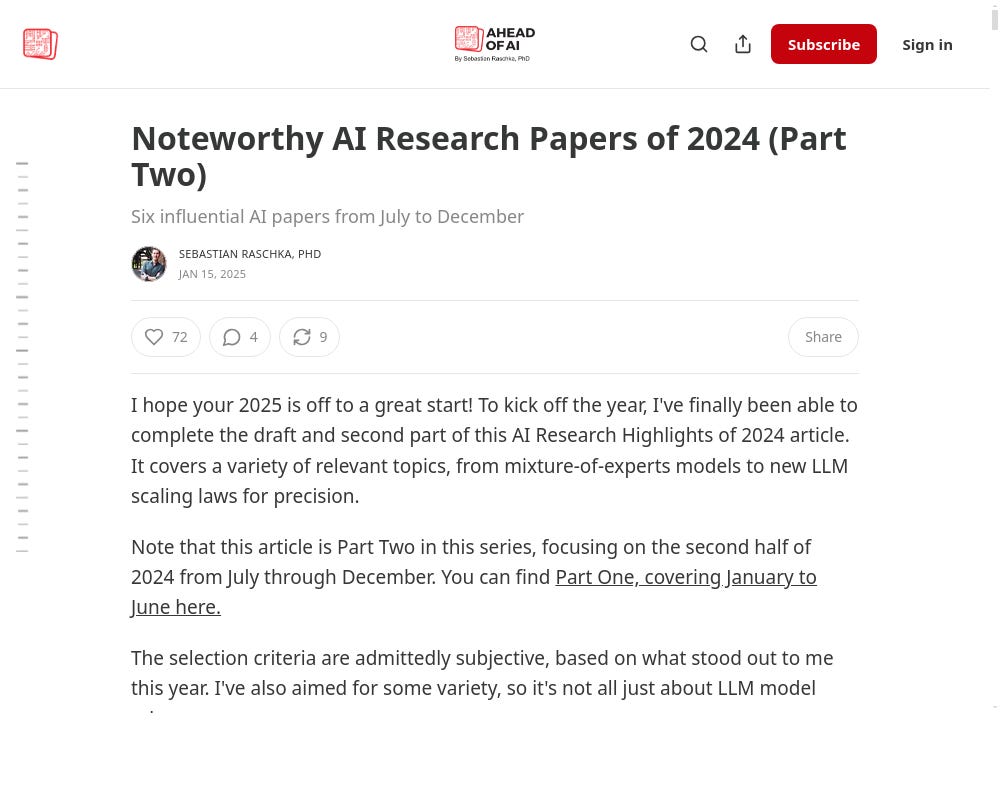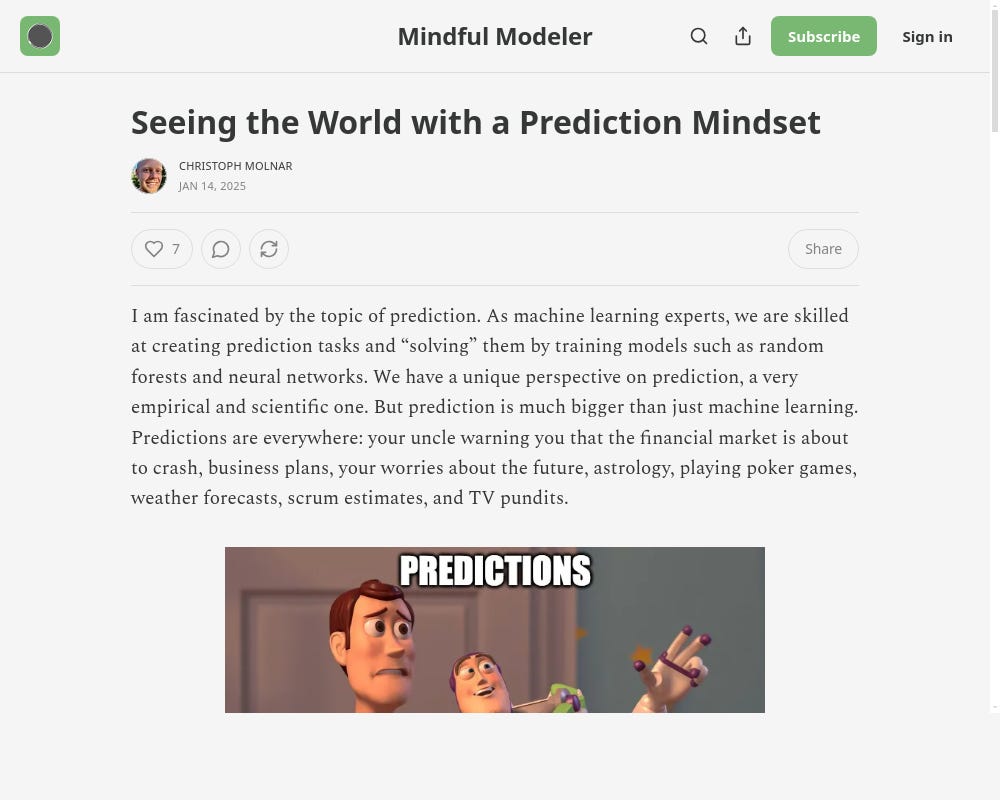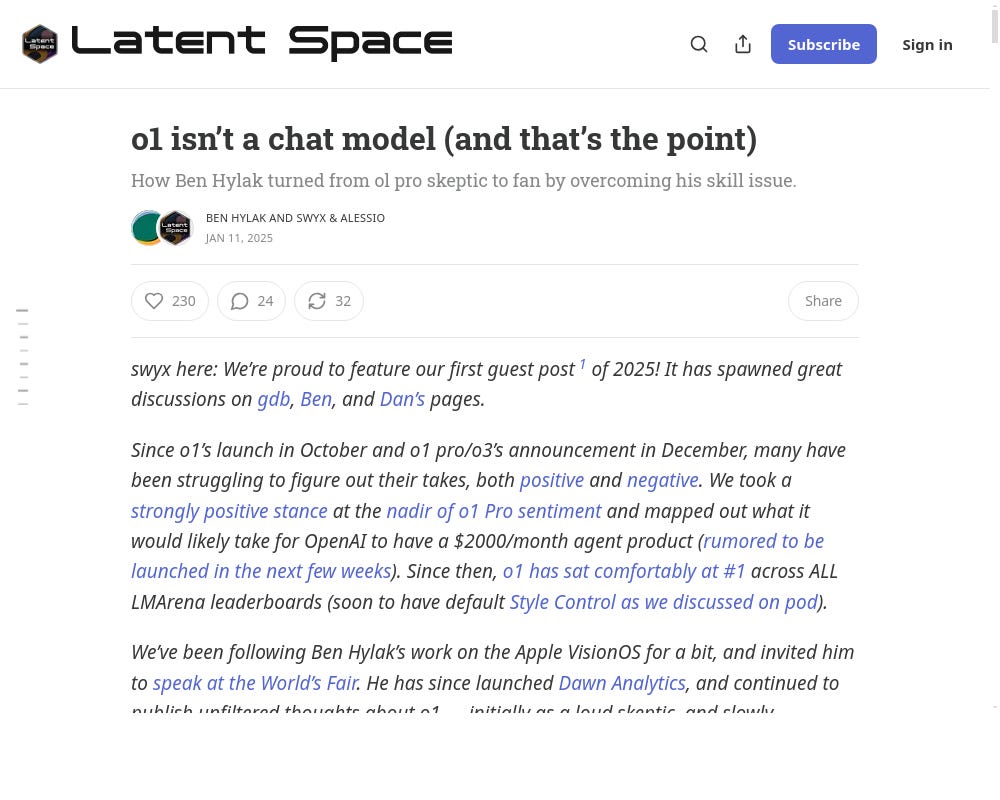Multimodal Biometric Authentication, Noteworthy AI Research Papers of 2024, 5 Common Mistakes to Avoid When Training LLMs, and more
Society's Backend Reading List 01-17-2025
Happy Friday! Here's a comprehensive AI reading list from this past week. Thanks to all the incredible authors for creating these helpful articles and learning resources.
I put one of these together each week. If reading about AI updates and topics is something you enjoy, make sure to subscribe.
Society's Backend is reader supported. You can support my work (these reading lists and standalone articles) for 80% off for the first year (just $1/mo). You'll also get the extended reading list each week.
A huge thanks to all supporters. 🙂
What Happened Last Week
Here are some resources to learn more about what happened in AI last week and why those happenings are important:
The LWiAI podcast: Nvidia revealed a $3,000 personal AI supercomputer called Digits to help developers with large models. The U.S. Department of Justice implemented a rule restricting data transmission to certain countries, including China and Russia. Additionally, Meta faced legal issues over training its Llama model on potentially pirated content.
Top ML Papers of the Week: Recent ML research highlights several innovative approaches, including Cache-Augmented Generation (CAG) for improving long-context LLMs, and Agent Laboratory, which enhances research efficiency using LLM agents. Comparisons between long-context models and retrieval-augmented generation (RAG) show that long-context models generally perform better in question-answering tasks. Additionally, new frameworks like Cosmos World Model enable safe training of AI in digital environments, while advancements in math reasoning and question generation are also discussed.
Last Week's Reading List
In case you missed it, here are some highlights from last week:
Reading List
Beyond Passwords: A Multimodal Approach to Biometric Authentication Using ECG and Iris Data
Biometric authentication is becoming essential for improving security against cyber threats, but traditional methods like passwords are increasingly vulnerable. A new multimodal system combining ECG and iris data enhances accuracy and resistance to spoofing through advanced feature extraction and classification techniques. Experiments show this approach significantly outperforms standard methods, achieving high accuracy and reliability in user authentication.
How To Leverage AI In Your Startup
AI can enhance productivity and decision-making in startups. Implementing AI tools can streamline processes and improve customer experiences. Startups should focus on integrating AI thoughtfully to maximize its benefits.
An open call for the next Google.org Accelerator: Generative AI
Generative AI can help tackle major global challenges, with research indicating its impact on the UN’s Sustainable Development Goals. Despite interest, many nonprofits face barriers to using this technology, prompting Google.org to launch a Generative AI Accelerator to support organizations in developing AI-driven solutions. A new global call for applicants invites nonprofits and social enterprises to join the next cohort for training, resources, and funding to amplify their social impact.
Let me use my local LMs on Meta Ray-Bans
By
Meta Ray-Bans, launched in 2021, have the potential to become essential AI devices if local language models are integrated effectively. Current cloud-based AI limits their capabilities, but there is strong demand for on-device models that enhance privacy and speed. The future of these glasses relies on creating an open ecosystem for developers to innovate and improve AI functionalities.
Noteworthy AI Research Papers of 2024 (Part Two)
By
The article highlights significant AI research papers from the second half of 2024, focusing on advancements in models like Llama 3 and techniques for optimizing LLM performance during inference. It discusses the importance of scaling laws for precision and the potential benefits of synthetic data in training. The author emphasizes ongoing developments in multimodal LLMs and the push for improved computational efficiency in AI models.
Seeing the World with a Prediction Mindset
By
Prediction is a fundamental aspect of life, extending beyond machine learning to areas like finance, politics, and personal decisions. The author is writing a book titled "The Prediction Mindset," which explores how predictions are shaped by human biases and societal narratives. This book aims to offer philosophical insights and practical advice on understanding and trusting predictions.
5 Common Mistakes to Avoid When Training LLMs
Training large language models (LLMs) requires careful attention to data preprocessing, resource planning, and model evaluation. Common mistakes include neglecting bias considerations and failing to fine-tune models for specific tasks. Avoiding these pitfalls leads to more accurate, efficient, and ethical LLMs.
RAG Hallucination Detection Techniques
RAG (retrieval augmented generation) systems can still produce hallucinations, or factually incorrect outputs, despite retrieving data from knowledge bases. Techniques like hallucination metrics, the G-Eval framework, and RAG-specific metrics can help detect these inaccuracies in generated responses. Implementing these methods allows for better evaluation and improvement of the reliability of LLM outputs.
o1 isn’t a chat model (and that’s the point)
By
o1 is not a chat model; it functions more like a report generator that requires clear context to produce effective output. Users initially misused it, thinking it was similar to chatbots, but have since learned to provide detailed prompts for better results. Understanding how to use o1 properly has led to impressive one-shot answers and effective problem-solving capabilities.
Pay $18 for these 21 MLE books
Get a comprehensive bundle of 21 machine learning books for at least $18, featuring top resources like the LLM Engineer's Handbook and Python Machine Learning By Example. This offer supports Direct Relief, providing medical aid worldwide, and has already raised over $2,300 for charity. You can access the materials on any device in PDF and ePUB formats.
Unstable Diffusion
Keep reading with a 7-day free trial
Subscribe to Society's Backend to keep reading this post and get 7 days of free access to the full post archives.

